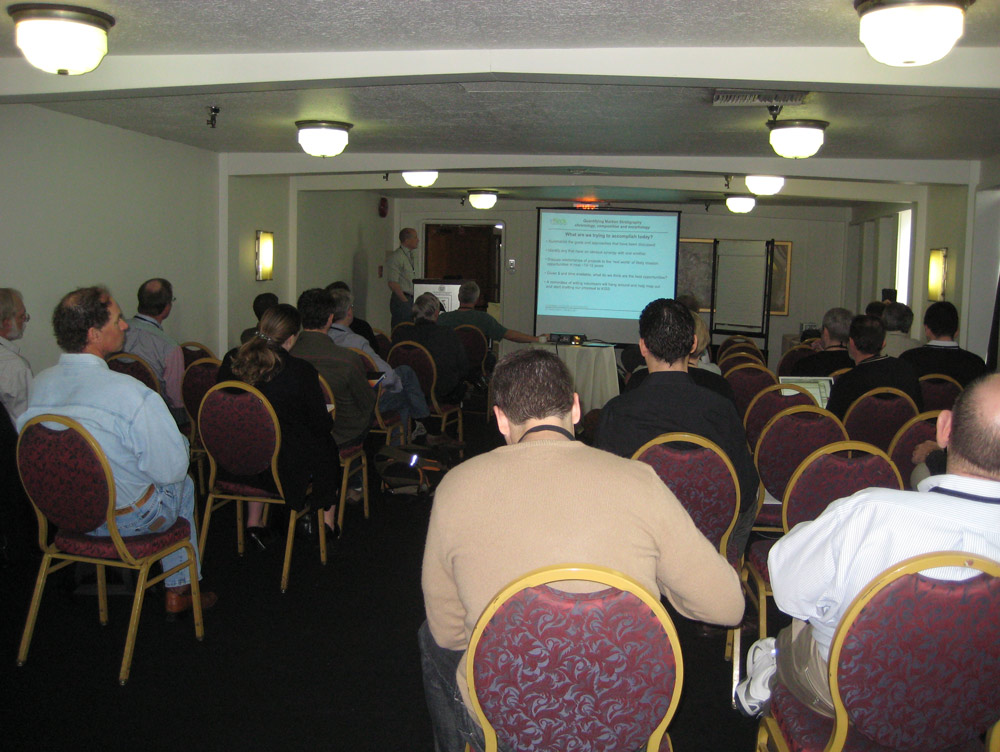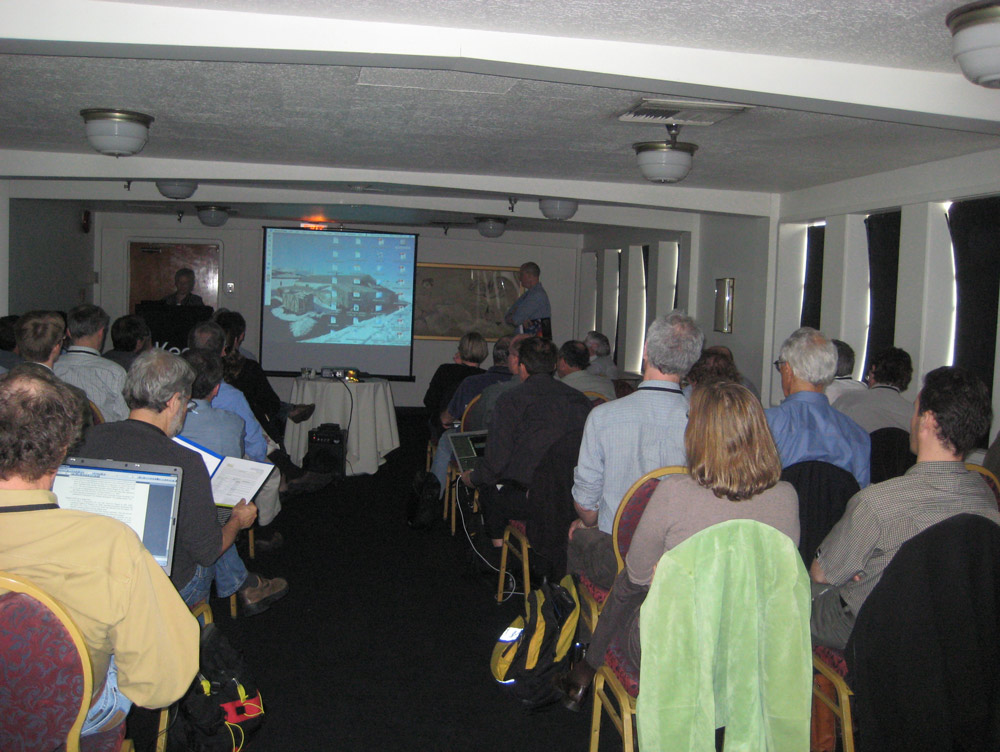Workshop Overview:
Recent exploration of the surface of Mars has revolutionized our understanding of its evolution and current processes. Aqueous, aeolian and volcanic stratigraphic sequences have been recognized; phases that precipitated from or reacted with liquid water have been identified; we have created high-resolution images of stratified deposits of ice and dust at high latitude; and real-time geomorphologic changes have been observed. These discoveries are transforming our view of geological processes on Mars, particularly those involving near-surface water.
These discoveries present both an opportunity and a challenge: Locked within these stratigraphic sequences and distinctive surface materials is a record of surface water, volcanism, geomorphologic evolution and climate likely spanning much of the history of Mars. But, just as for past studies of the stratigraphy of the Earth and Moon, that record can only be read through measurements constraining process, rate and, most importantly, age.
This workshop was hosted by the Division of Geological and Planetary Sciences of the California Institute of Technology and is supported by the Keck Institute for Space Studies.





